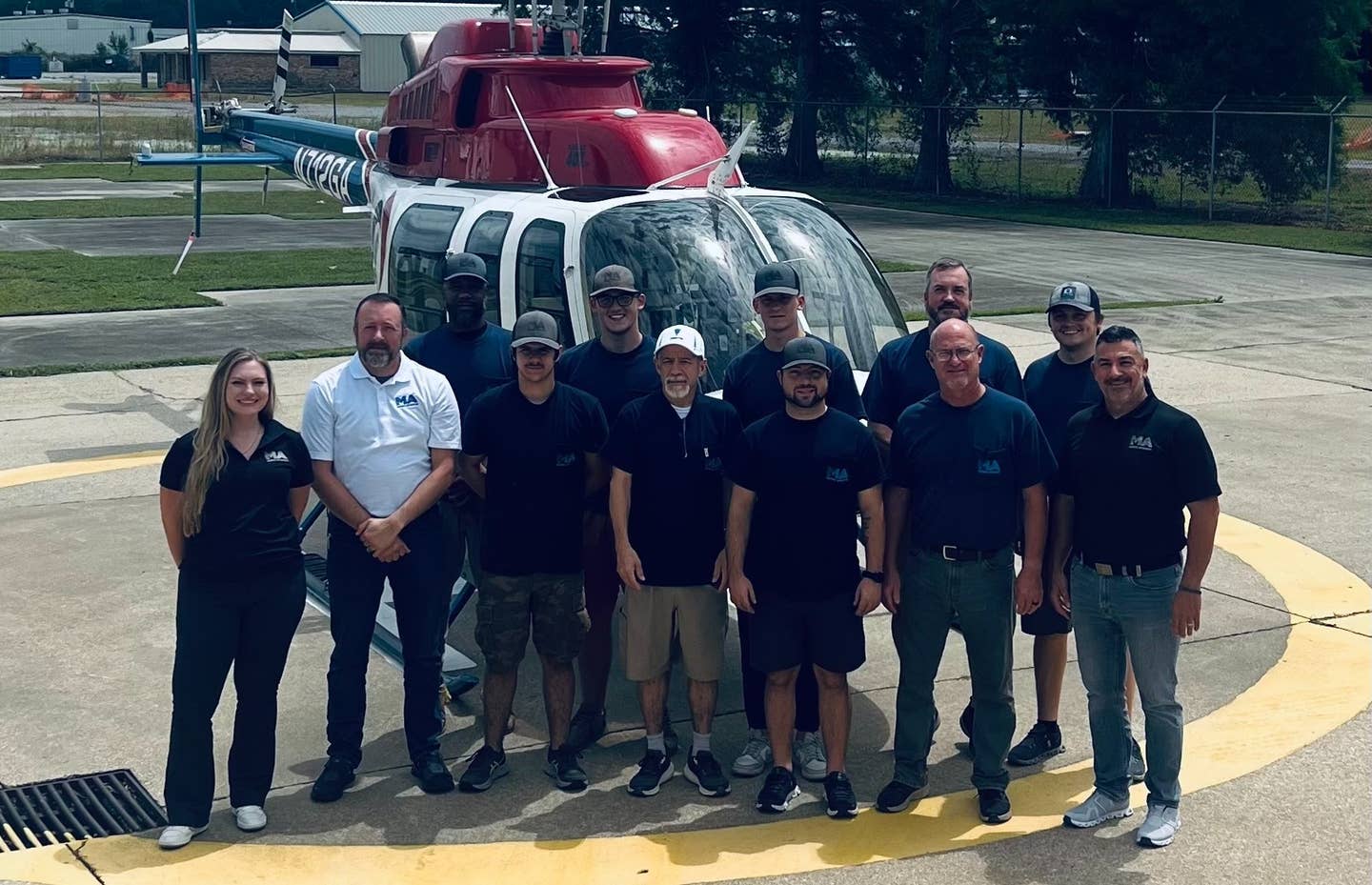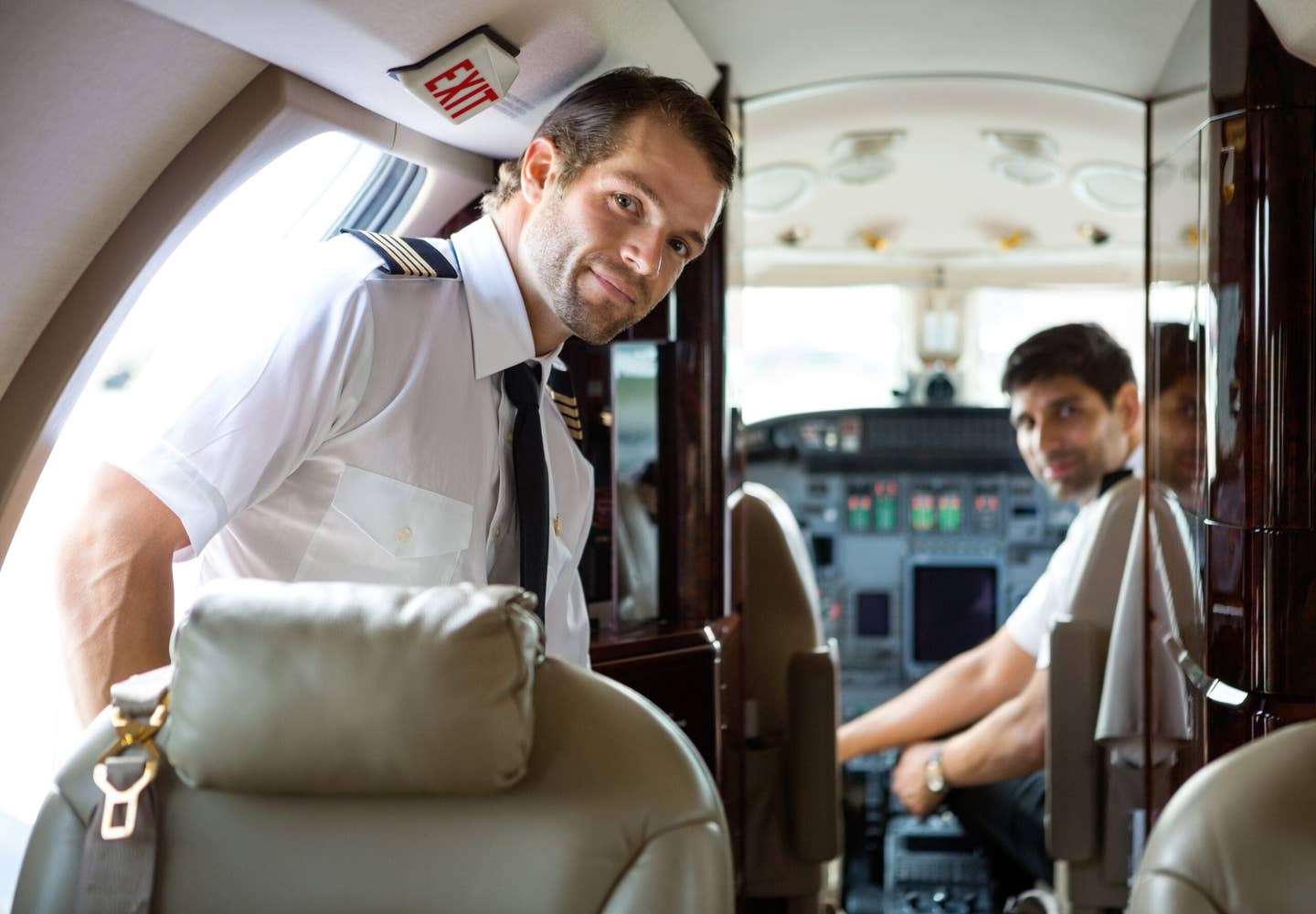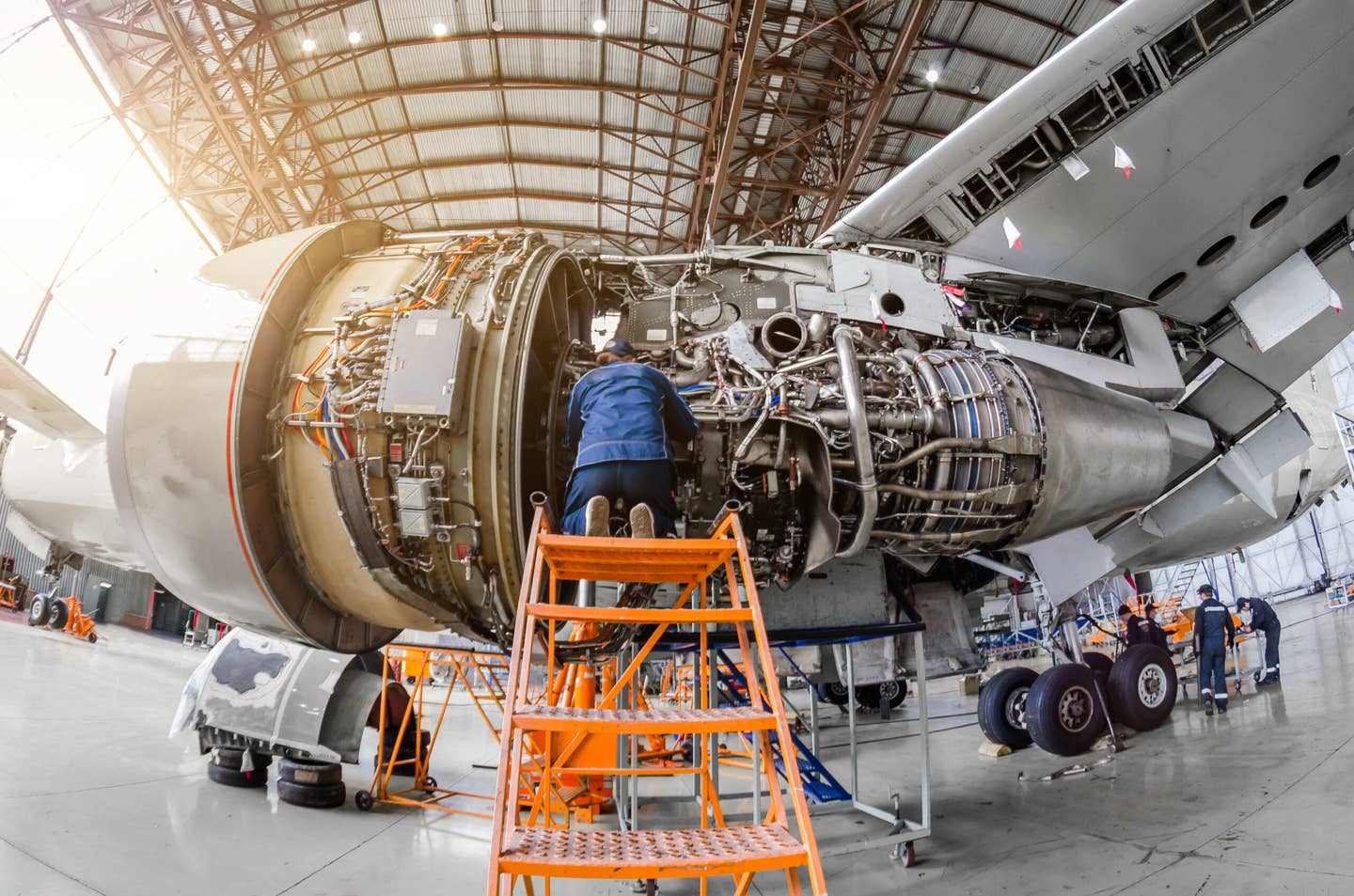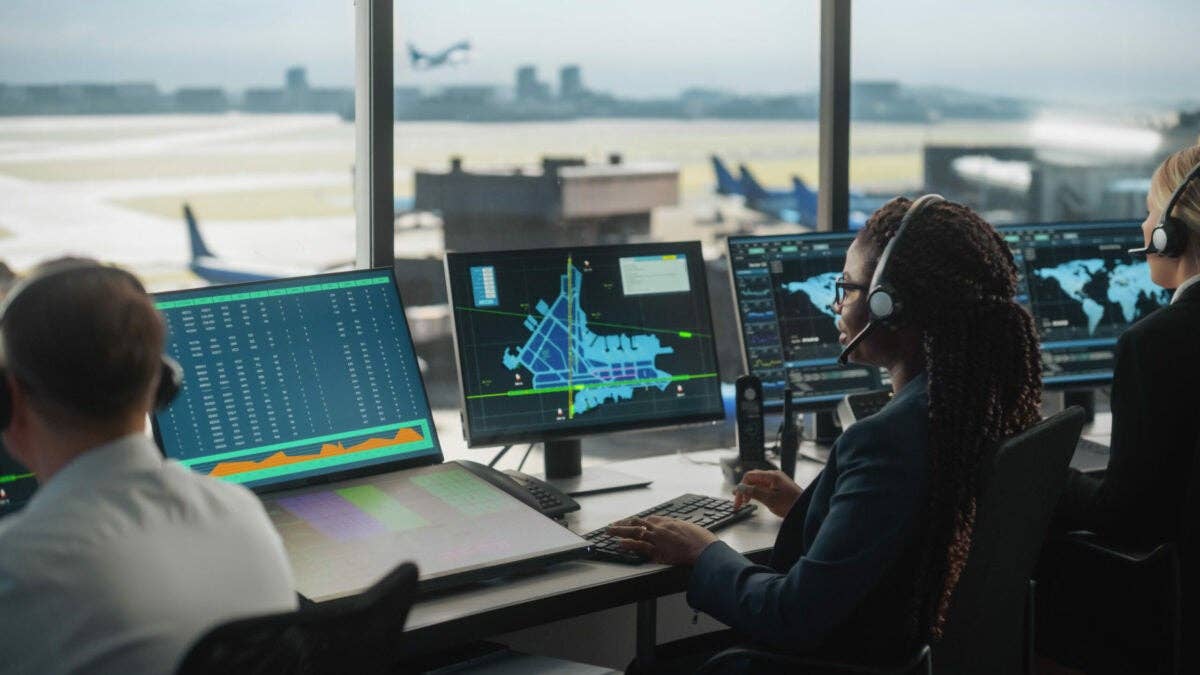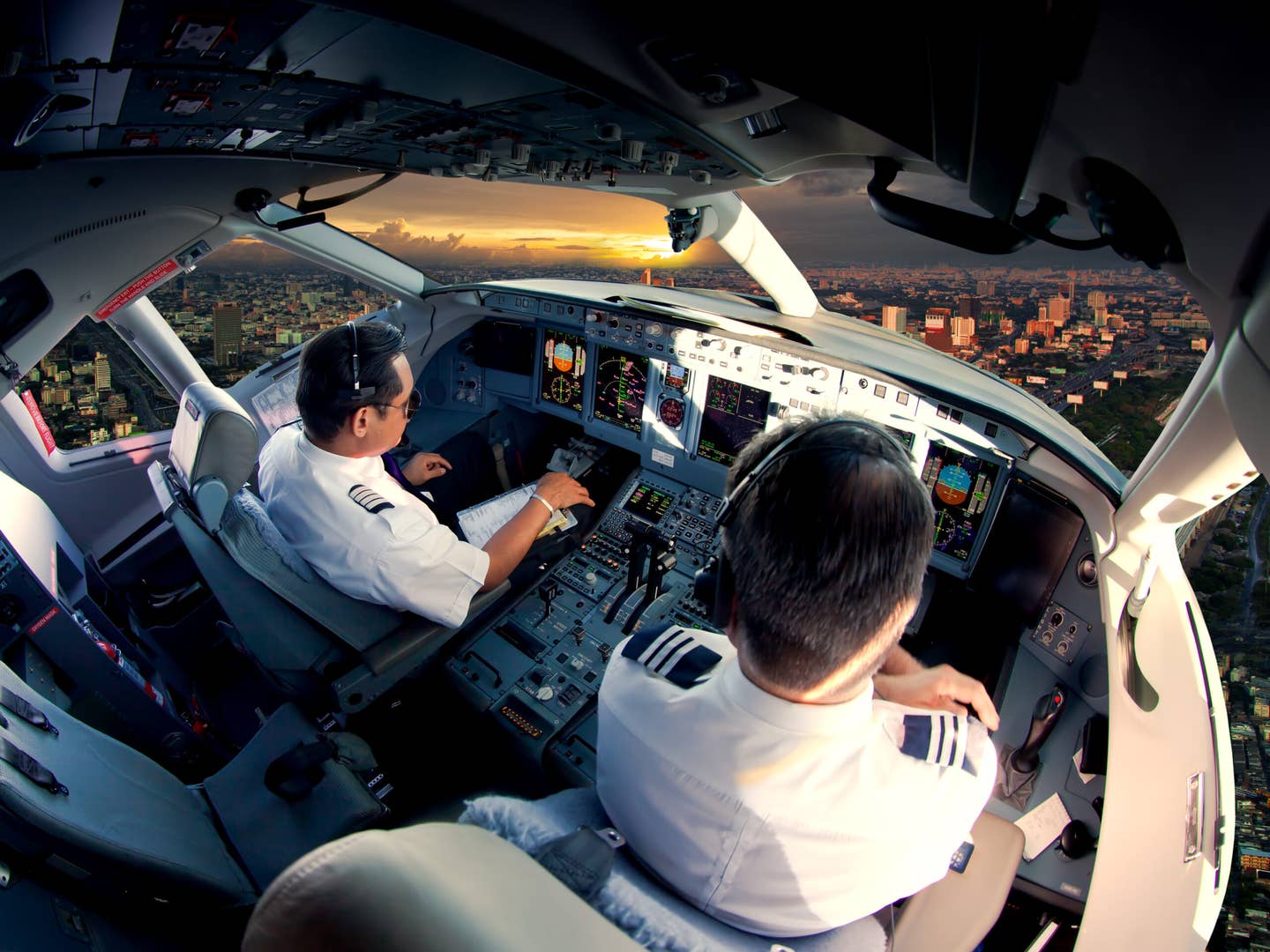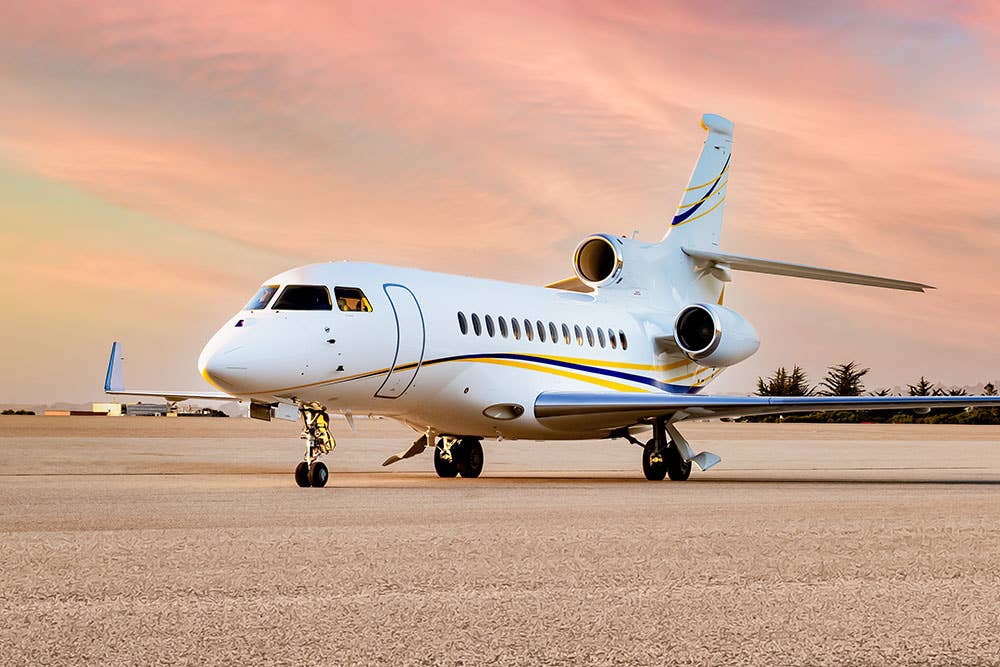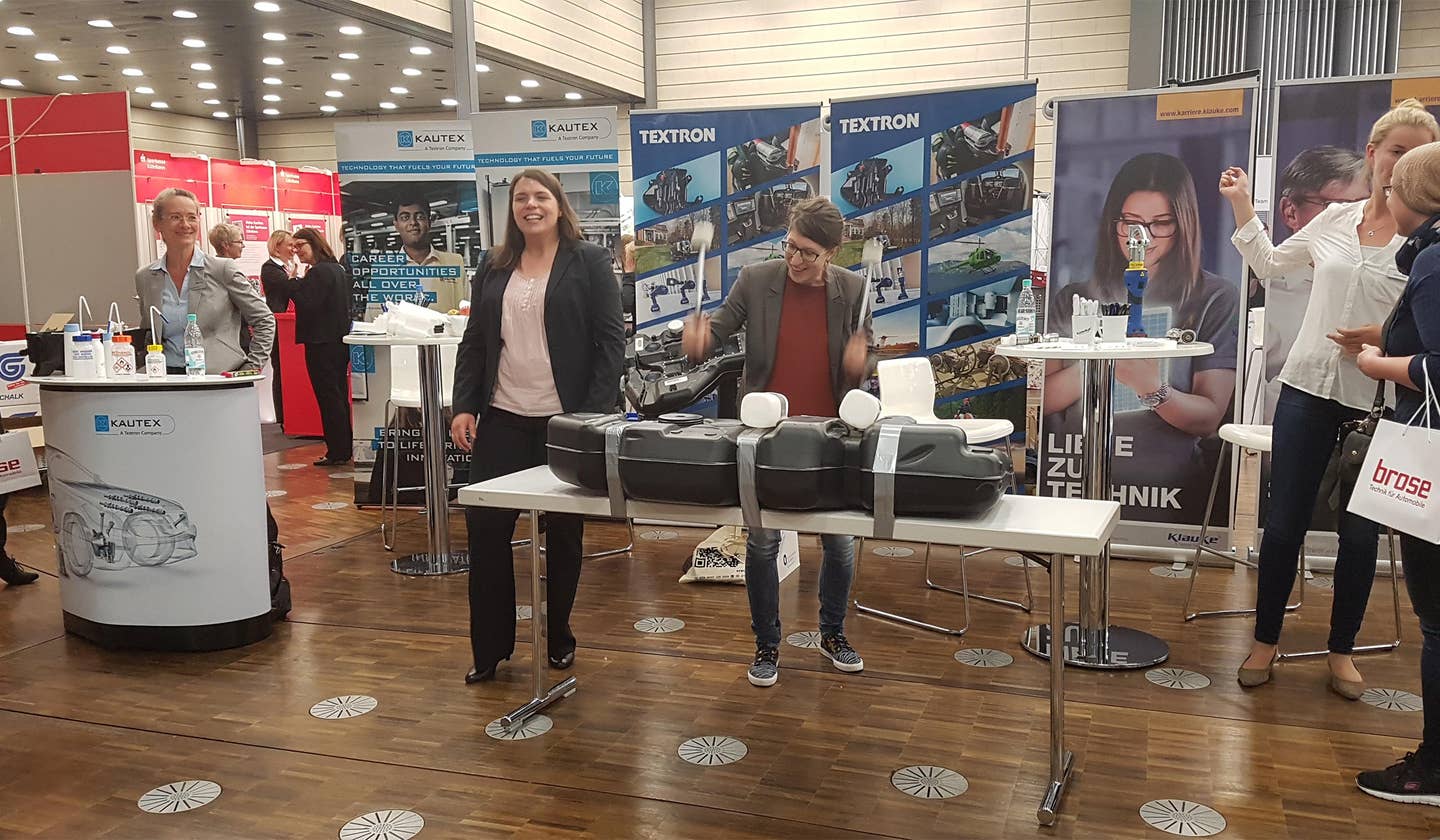
Textron seeks career changers at a trade show for women in the workforce. Textron Aviation
Opportunities for advancement in aviation and aerospace aren’t only for those within the industry, says executive recruiter Rod McDermott, whose firm is searching for professionals from unrelated fields interested in aviation and ready for a career change.
“We have so many people passionate about aviation who make their living doing something else, and we want to get them into aviation careers,” says McDermott. “Our mission is to try to strengthen the aviation and aerospace ecosystem.”
To be sure, demand for aeronautical engineers, pilots, maintenance technicians and other aviation specialists is on the rise, but the industry also needs a host of traditional business expertise that professionals from outside of aviation can provide. At EAA AirVenture Oshkosh 2017, McDermott, co-founder and managing director of retained executive recruitment firm McDermott & Bull, and several aerospace clients highlighted such career-changing opportunities in a series of videos created in partnership with Flying magazine.
"It's all about the skill sets," says former astronaut Charlie Precourt, general manager of Orbital ATK, which builds space launch vehicles and related propulsion systems. Precourt notes Orbital ATK recently hired a pair of supply-chain experts from the automotive industry experienced in high-volume manufacturing. "We can figure out how to use those skills, and train you in our specialty," Precourt says. "The basics are the same, they cross over very easily."
At Cirrus Aircraft, Pat Waddick, president of Innovation and Operations, says in addition to crossover skills, "We care about interest and enthusiasm." He cites a senior supply-chain leader fascinated by aviation who recently joined the company from the recreational-products industry. "Our business is growing, and we need more people to be part of our family and part of this industry," Waddick says.
Joe Brown, president of Hartzell Propeller, celebrating its 100th anniversary this year, says that a former bank teller now runs the company's shipping center, and "she's become a technical expert in global export."
These and the other companies McDermott spoke with are all in expansion mode, and interested candidates can contact human-resources personnel and submit resumes via company websites, even if no current positions for their specialties are open.
Meanwhile, in the C-suite and vice president positions his company recruits for, McDermott has identified three positions whose growing demand can’t be met from within the aviation and aerospace fields alone: customer experience officer, chief technology officer and big-data specialists.
Customer Experience Officer (CXO): A position initially created for high-end consumer product companies, the CXO has charge of all customer interactions with an organization, from initial inquiries to aftermarket support. Aircraft manufacturers such as Cirrus Aircraft and Bombardier are among aviation companies with CXOs now. "Customer experience is so important," says McDermott. "Companies are recognizing, 'I'm delivering an aircraft worth millions of dollars,' and asking, 'What's the experience I want customers to have?'" Execs with CXO backgrounds from the entertainment and hospitality industries as well as luxury auto and consumer-goods brands have the requisite skills, McDermott says.
Chief Technology Officer (CTO): With the key role technology and connectivity play in aviation and aerospace today, the CTO, who sets the strategy for using technology to meet the organization's mission or differentiate its products or services, is in high demand. Most CTOs have a background in engineering, but not necessarily aviation. McDermott's firm is currently conducting a CTO search for a major drone manufacturer. "Half of the candidates are women," he notes, but "they're all from outside aerospace — not a single candidate" among them is from within the industry. That's how McDermott likes it. "If they're working for Intel or Oracle or Google, we want to get them into aerospace."
Big-Data Specialists: Exponential growth in data collected from engines, airframes, avionics and other sources is driving demand for professionals who can archive, analyze and interpret large data sets and transform them into information. "Data analytics is the next level," says McDermott. "Part of that is figuring out how to create a service from data that customers are willing to buy. Those job skills are in high demand." Panasonic, a client of his firm, now uses its satellite network linked to commercial aircraft "to collect data on turbulence and actual wind speed so they can send that to subscribers," he says.
McDermott’s work in the aviation field is itself an example of following a passion. Founded 17 years ago, the former banker’s recruitment firm initially focused on executive placement for technology and financial-services companies. A lifelong aviation enthusiast, McDermott used his Eclipse 550 to call on potential clients and build the business. Then, during one of his annual visits to AirVenture Oshkosh a few years ago, McDermott and a colleague had an epiphany. “We said, ‘Wouldn’t it be great if we built an aviation [executive recruitment] practice, and one day we’d be coming to AirVenture and meeting with CEOs of these leading companies?’” Concludes McDermott on the journey since, “We found a way to combine our passion for aviation with our business, just as we advocate other people do.”
Find out more about opportunities to become an aviation professional here.

Subscribe to Our Newsletter
Get the latest FLYING stories delivered directly to your inbox

